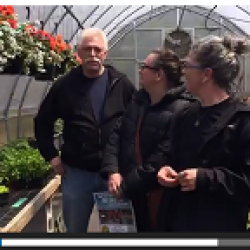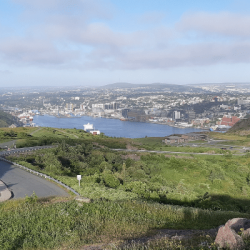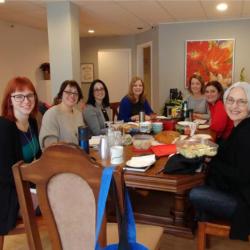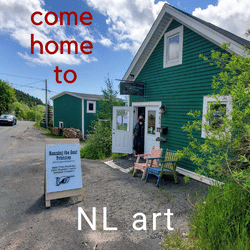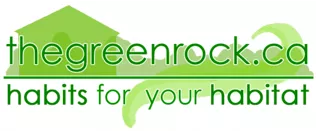zero waste: where do i even start?
debunking zero waste myths

Perhaps you’ve seen the poster item for zero waste: a year’s worth of garbage in a mason jar. While I enjoy seeing and am inspired by how little waste some of these people produce, the “garbage in a jar” has by now outlived its usefulness as an engagement tool for ZW. In fact, in my conversations with people new to ZW, the “garbage in a jar” isn’t inspiring so much as intimidating. People view ZW through the lens of absolutism – where you must achieve perfection or risk harsh criticism from other Zero Wasters, which is something the movement has now realized we must overcome. To that end, I want to reshape your thinking about ZW from a movement that is exclusive, expensive, extreme, and unattainable, to the idea that ZW is a mindset, one that you can adapt to your needs and lifestyle. You don’t have to dive into the deep-end of homesteading – in fact, you probably shouldn’t. Start with the basics and work your way up from there.

The first thing you can do is live with intention.
Sounds hokey? Good. Because that’s how I mean it. Living with intention, as I conceive it, means being aware of your impact on the world around you. It means knowing your actions have consequences and working to find out what those consequences are. This can be a burdensome way of thinking (because butterfly wings, right?) but can also be an antidote to thinking that your individual contributions don’t make a difference. A good introductory activity to Zero Waste that is rooted in the concept of ‘living with intention’ is the activity called the Trash Audit: take your household garbage, look at what you throw away, categorize it, and see what you should cut down on so that you can make the biggest personal impact. Maybe you find out that you’ve been throwing out recyclables, or that plastic food wrap makes up a large percentage of your weekly waste. Whatever your discoveries, a Trash Audit is an important step because it’s practical (it answers the question “Where do I start?”) and it makes you build a mental link between your daily habits and what you put in that black bag every day. People treat that garbage bag like a black hole, but whatever you put in there doesn’t disappear into another dimension. It stays here, on this earth, probably in this earth.

Where do we go from here? This is the part where you experiment, make mistakes, try new things, learn new skills, test your boundaries. In other words, this is the fun part! This is also when you’ll find that some ZW ideas or products just don’t work for you. Either you don’t have the time to pickle your own beets because you work 50 hours a week, or you actually just hate pickling. I’ve come to a point where I happily walk away from ZW changes because I’ve tried them, I’ve been honest with myself about the pros and cons, and I’ve decided that this one is not worth the battle. Additionally, what you consider Beginner Zero Waste may be Advanced for others, and vice versa. The key point here is to be honest with yourself: don’t knock it till you try it, and once you’ve tried it, feel free to knock it.

And whatever you do, do one thing at a time, go slowly, know you will make mistakes (we all do), and think about your wasteful habits before trying to tackle anyone else’s. You can’t control your spouse or your friends, trying to do so will be an exercise in futility and give meaning to the book title “How to Lose Friends and Alienate People.”

So to sum up: if you’re honest with yourself, live with intention, and accept that you won’t get it right every time, than anything you do will be appreciated by other people also working towards zero waste. After all, “we don’t need a handful of people doing zero waste perfectly. We need millions of people doing it imperfectly.”
this article is republished from a previous version of Guide to the Good.

share article

Sophie Wells
Sophie Wells is a volunteer member of The Social Justice Cooperative, and member of their Zero Waste action team. Sophie's aim is to reduce the consumption of resources, specifically those that harm people, animals, and our environment.
related articles
